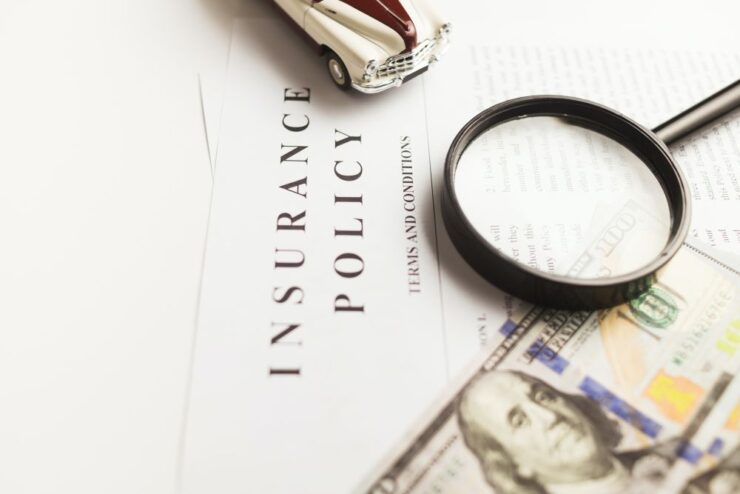Driving a vehicle brings with it a probability of risk and therefore you should always be covered from potential liabilities and therefore owning vehicle insurance with apt coverage is a must. Insuring your vehicle is an absolute necessity both from a financial as well as legal standpoint – car insurance is mandatory in almost all US States and being pulled over by a cop without one can have a range of consequences such as being fined or having your licence or registration suspended.
Such incidents have a negative impact on your MVR or Motor Vehicle Report as it documents all significant incidents with regard to your driving activities and therefore, in turn, can affect your insurance premiums. You can check lemonade.com for more information. In this article, we will attempt to understand what MVR is, how it affects your insurance, different insurance plans as well as other factors which can affect the same.
Table of Contents
What is an MVR?

MVR or Motor Vehicle Report can be defined as a document issued by the DMV (Department of motor vehicles) containing information pertaining to your license such as its class, status or restrictions if any; personal credentials such as name, age, social security number, contact number and address; and a summary of driving history for a specific period of time – including offenses such as accidents or traffic violations.
As deemed by the DPPA (Driver Privacy Protection Act), your MVR is not open to public access and a certified copy is only granted under specific circumstances such as:
- Verification from any government agency
- Insurance purposes
- Security reasons such as theft, any investigation purpose
- Auto safety reasons such as factory recalls or emissions
- Demand by Toll agencies or market surveys
You can personally request a copy of the same after stating who the recipient is and the reasons for the requirement thereof. Such requests are documented for five years.
Reviewing your personal MVR occasionally is a good practice in order to rectify any erroneous entries which may cost you money or your reputation. While uncommon, it is not impossible to have traffic infractions of another person listed in your driving summary due to incorrect recording of licence plate information or due to the fact that you share a common name. In states which do not provide an offline copy of your MVR, you need to visit the DMV to personally initiate a request – upon successful payment, the document is mailed to the address in record.
Why Is It Important?
In most US states, the MVR contains the driving history of the past three years – this information is updated by the concerned state body. Since the MVR documents events such as traffic offences, accidents, and other crimes, a clean MVR becomes extremely significant in case you wish to apply for a job that involves driving – Your potential employers will first double-check your credentials from your job application with your MVR to verify your identity before scrutinizing your driving record. A clean MVR basically declares you as a law-abiding and safe driver thereby placing you in a good position to get the job.
Similarly, insurance companies check your MVR summary to determine how risky of a driver you are to insure – Naturally, high-risk drivers have to pay a bumped-up insurance premium. In the case of a driver with repeated documented infractions or a history of criminal activity, companies may straight up refuse to insure such a person.
What Does Car Insurance Cover?

Across most states, the US government deems every vehicle owner to at least have Liability Coverage under their insurance. Liability as in property and bodily harm inflicted on others due to your fault. This includes paying for damages caused to someone’s car, their property, or medical costs needed to treat bodily injuries inflicted on other people. It also covers part of your legal fee in case you get sued after an accident.
You have probably noticed that Insurance with Liability coverage alone does not pay for your own repairs – in which case you need to include Collision or Comprehensive coverage. However, you require to set a deductible in order to avail the benefits of the same.
A deductible is the fraction of the total payment required for repairs to your vehicle which comes out of your pocket alone. The rest is covered by your insurance provider. Therefore, a lesser deductible value will warrant a high insurance premium and vice versa. Setting the deductible is key and requires careful consideration. For example, a casual city driver is better off with a higher deductible than an Inter-State Trucker whose livelihood demands them to be on the road for extended periods –
Collision coverage pays for repair due to damages sustained in a car crash. It has you covered should you fall victim to a hit-and-run and pitches in should the liability coverage of the other vehicle involved be inadequate to cover all your costs. In case your vehicle is declared to be a total loss – where the total cost of repairs exceeds the valuation of your vehicle by your insurance company, you are paid the cash value of your car.
Comprehensive coverage includes the benefits of both liability and collision coverage and brings further benefits to the table – Including coverage from damages sustained due to unforeseen circumstances such as flooding, fire, vandalism, attempted theft, and collision with cattle. In the event of non-recovery of your vehicle after being stolen, your insurance company shall pay you the cash value of your vehicle.
However, it shall not be liable to pay for loss of any personal property present in the stolen vehicle like laptops, tablets, cash, jewelry or cell phones. The company may deny insurance coverage in case the vehicle was involved in a crash resulting from wilful reckless behaviour such as stunt driving or while using your personal vehicle to conduct business such as rideshare services. Comprehensive coverage is often referred to as “Complete car insurance”.
What Factors Affect Your Insurance Premium?

The importance of a clean driving record has already been discussed.
- Presence of any modifications: for example, a bug deflector on your Chevy Silverado may not affect your premium as much as a custom exhaust or supercharger might do so.
- The age of the vehicle: Many insurance companies do not insure vehicles with a classic status.
- Number of drivers listed under your policy: Your policy requires you to declare members of your family who are potential drivers of the concerned vehicle. The higher the number, the greater your premium.
- High risk drivers are required to pay higher premiums.
- Your location may also affect your insurance premium.
To conclude, your MVR is essentially an indicator of how safe a driver you are based on your recent driving activity log. A clean MVR is essential in case you are looking for a job as a driver and a good rate on your car insurance. Insurance premium rates are dependent on various factors and you have a choice of adding additional benefits on top of your barebones liability coverage for the right price – So, drive safely, carry all essential documentation and never forget to take time and evaluate your options properly before signing on that insurance contract.

